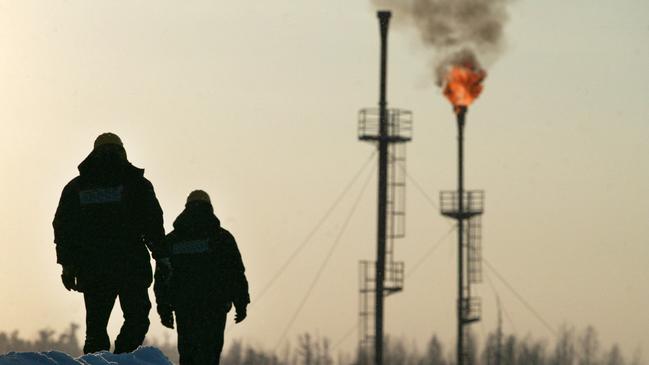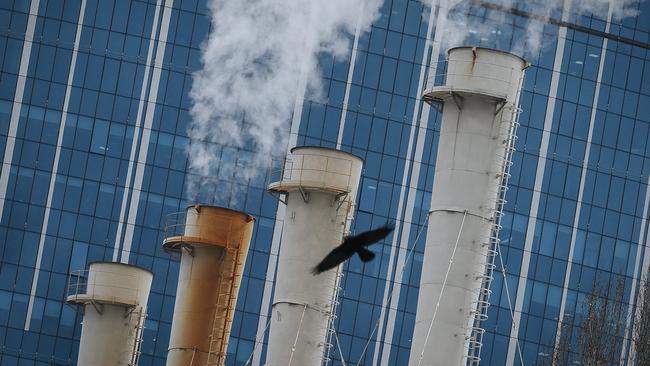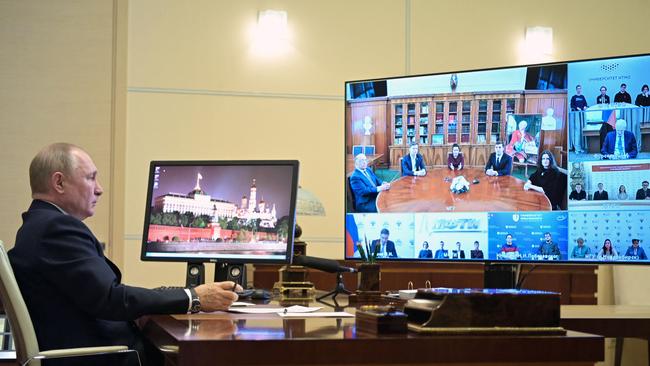The knock-on effect of Russia conflict with Ukraine will be global famine

Now the West is anxious that already high gas prices will add to a looming cost of living crisis at home. As the Russians tighten their stranglehold on Ukraine in an unusually stretched-out and public period of antebellum, so the price of short-term gas has climbed to three times the price in January last year, and six times the typical pre-pandemic level. When Russian gas supplies slumped before Christmas – supposedly because of unusually cold temperatures but probably also as a reminder to a new German government to approve quickly the Nord Stream 2 pipeline – prices soared even higher.

The cost of energy is, of course, politically toxic. Not least in Britain as Ofgem prepares to raise its energy bill cap. Britain is less dependent than many of its European neighbours on Russian gas but it cannot stay immune from galloping global prices. If Russia marches into Ukraine, or even if it just prolongs the current stand-off through the winter, the stress on the gas market will render it more volatile than in a decade. For separate reasons, including an Iranian-backed Houthi rebel drone attack on the United Arab Emirates, oil has already hit a seven-year high this month and Brent crude seems set to reach $100 a barrel by September.
But it’s gas that is the problem and it is folly to look at the trends through a parochial spectrum. Natural gas is essential to the production of nitrogenous fertilisers, of urea, ammonium nitrate. For the past six months farmers across the world have struggled with the cost and scarcity of fertilisers. Unable to scrape together enough to fertilise and enrich their fields, unable to secure credit to tide them through to harvest, they warn that this year’s yields will be low.
Fertiliser plants are closing or operating at half strength because there is no way of predicting how far prices will rise. China has banned the export of phosphate fertiliser since last autumn to ensure its own farmers get enough. That hits India’s wheat sowing. The urea shortage has mobilised road-blocking protests by farmers in Pakistan; they complain that wheat output, sugar cane and maize will be affected.

Here then is the knock-on effect of a confrontation between Russia and Ukraine: the potential for famine. Conventional political sloganeering in Britain suggests the hard-up face a winter choice between heating and eating. But what is beginning to happen worldwide goes well beyond that dilemma and its banal advice to put on a sweater and perform a few star jumps in the living room.
The UN Food and Agriculture Organisation predicts famine conditions affecting 45 million. “The world,” it says, “hasn’t faced such a risk of widespread famine affecting multiple countries so severely in over a decade.” That includes countries like Taliban-governed, difficult-to-access Afghanistan where severely malnourished children are overwhelming health centres. The menace of extreme weather will continue to flood and scorch arable land in Africa and Asia. Incompetently run states will continue to fail their vulnerable citizens.
The exploding cost of gas, however, has been impossible to plan for. Kim Jong-un’s North Korea, cut off from Chinese fertiliser, has instructed rural communities to supply their own manure, in the form of human excrement (euphemistically called “night soil").

Access to markets is denied to farmers who can’t produce a manure pass, a logbook recording how much homemade fertiliser has been generated that week. North Korea is a famine barometer. It experienced terrible starvation in the 1990s when people were reduced to eating grass, so Kim has attuned his dictatorship to prepare for the worst in terms of food supply. Now he is not that far ahead of the loop. The Four Horsemen of the Apocalypse, it seems, are saddling up. There’s nothing quite like the prospect of a European war to get the fabled demons – conquest, war, pestilence and famine – mounted and ready to wreak chaos. And famine always rides in last to claim those weakened by misgovernment and disease.
The way the West chooses to fight its battles often makes famine worse. A US warship recently intercepted a 40-ton load of fertiliser from Iran to Yemen. The cargo, said the US, could have been used as explosives and confiscated the lot. Syria can’t import nitrogenous fertilisers for a similar reason. And the US treasury is trying to get Lithuania to block the transport of potash fertiliser from Belarus, in order to punish dictator President Lukashenko.
This kind of blockade may penalise regimes but it comes with a price tag, the sacrifice of moral high ground to tyrants at the expense of their people. That’s why disconnecting Russia from the international payments system, should it invade Ukraine, is such a complex decision.
Strategic planners have spent decades worrying about World War III but they were missing the point. War, when it comes, will have some 20th-century features but probably won’t be fought in multiple interlocking theatres. Rather, the fighting will be swift and confined – but the victims will be worldwide.
The Times



Russia has always held open the option of deploying its natural gas supplies to the West as a weapon, one that could either complement its tank divisions or replace them. States that displeased the Kremlin were sometimes confronted with sudden “technical” pipeline issues in the midst of a cold winter. Gazprom officials visiting central and east European customers were treated like princelings, at least to their faces. Russian gas has become an instrument of punishment and reward.